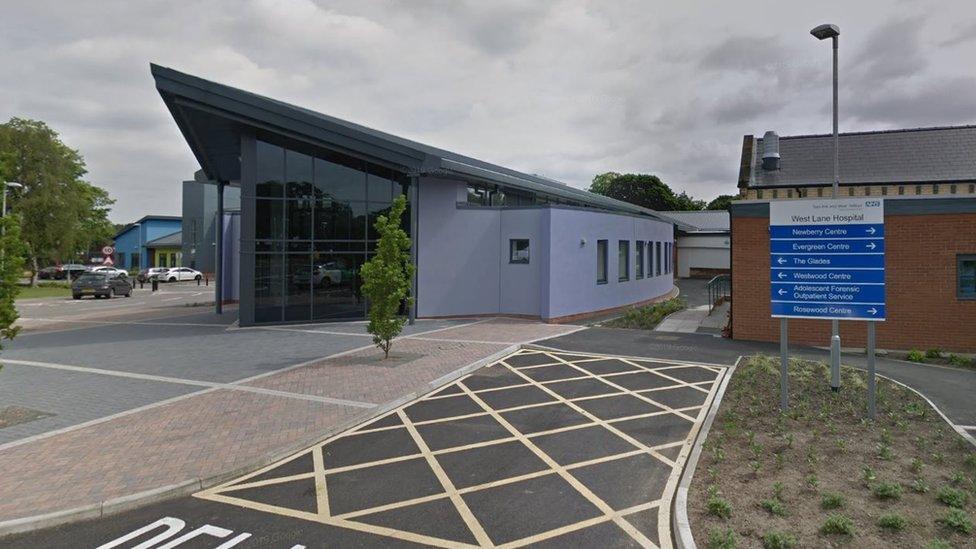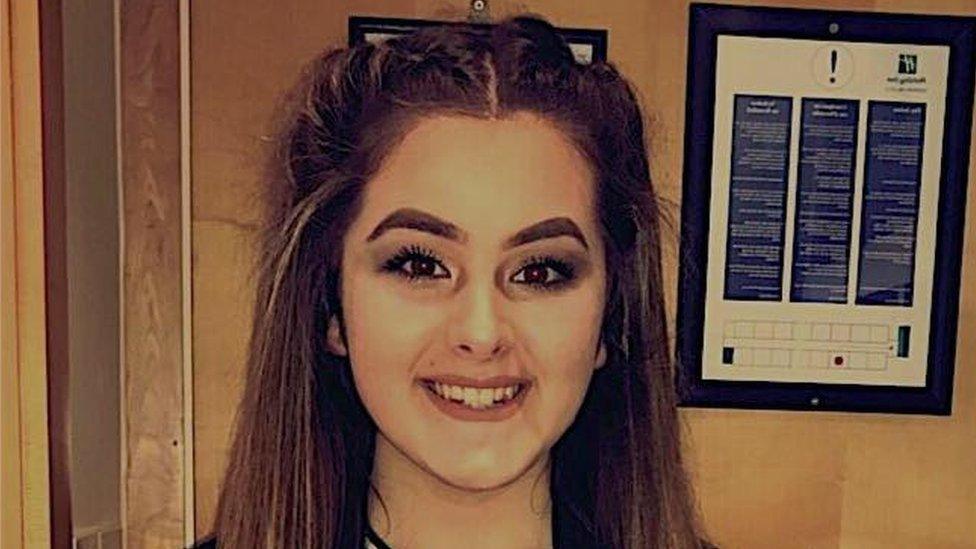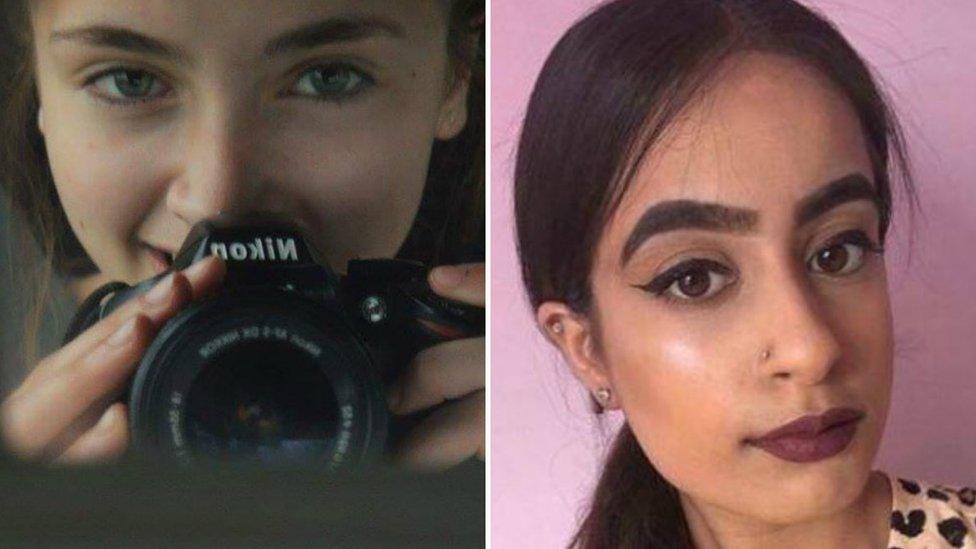Tees, Eske and Wear Valleys NHS Trust: Watchdog orders 'improvement'
- Published

Emily Moore is one of several teens to have died while under the care of the Tees, Esk and Wear Valleys NHS Foundation Trust
A mental health trust criticised over the deaths of vulnerable patients has been ordered to improve.
Tees, Esk and Wear Valleys NHS Foundation Trust is lacking in its safety and responsiveness, the Care Quality Commission (CQC) said, external.
The trust was previously criticised by families of teenagers and adults who died at mental health facilities.
It said it was "disappointed" with the CQC rating but knew "improvements are needed".
CQC inspectors visited the trust between 24 September and 6 November having rated its child and and adolescent mental health wards (CAMHS) inadequate earlier in the year.
It announced in August the closure of inpatient services at West Lane Hospital in Middlesbrough.

Inpatient services at West Lane Hospital closed after the CQC imposed conditions in August 2019
The inspectors rated the trust good for the effective, caring and well-led categories but requiring improvement for the safe and responsive areas.
Criticisms included a lack of staff, which caused delays in mental health crisis and children's services.
"Case loads were excessively high in some teams," the inspectors said.
Medicines were also "not always effectively managed", the CQC report said, including being potentially stored at incorrect temperatures. Poor record keeping was also noted.
'Services deteriorated'
In community mental health services for children and young people, the inspectors said there were long periods without patients being contacted, and waiting lists were "not reviewed to assess risk changes". It also said "staff did not know which children were waiting for treatment or receiving treatment".
The CQC also said the privacy and dignity of patients was "compromised in some areas" by CCTV.
"Meaningful activity was not always available" for patients, the inspectors also said.
Inspectors said there were some "outstanding practices", such as the use of an eye tracking device that let non-verbal patients to communicate.
CQC's deputy chief inspector of hospitals Kevin Cleary, said: "We found some services had deteriorated while others had failed to make sufficient improvements.
"However, we found that staff treated patients with compassion and kindness."
'Best possible care'
Trust chief executive Colin Martin said changes in staffing had already been made since the inspection.
He said: "We are disappointed to be rated requires improvement overall but we know that improvements are needed.
"We are working quickly to address these to make sure we provide the best possible care."
The trust serves two million people and employs more than 6,500 staff providing mental health and learning disability services at 22 sites between Durham and Harrogate.
- Published18 February 2020

- Published20 January 2020

- Published30 October 2019

- Published23 August 2019
